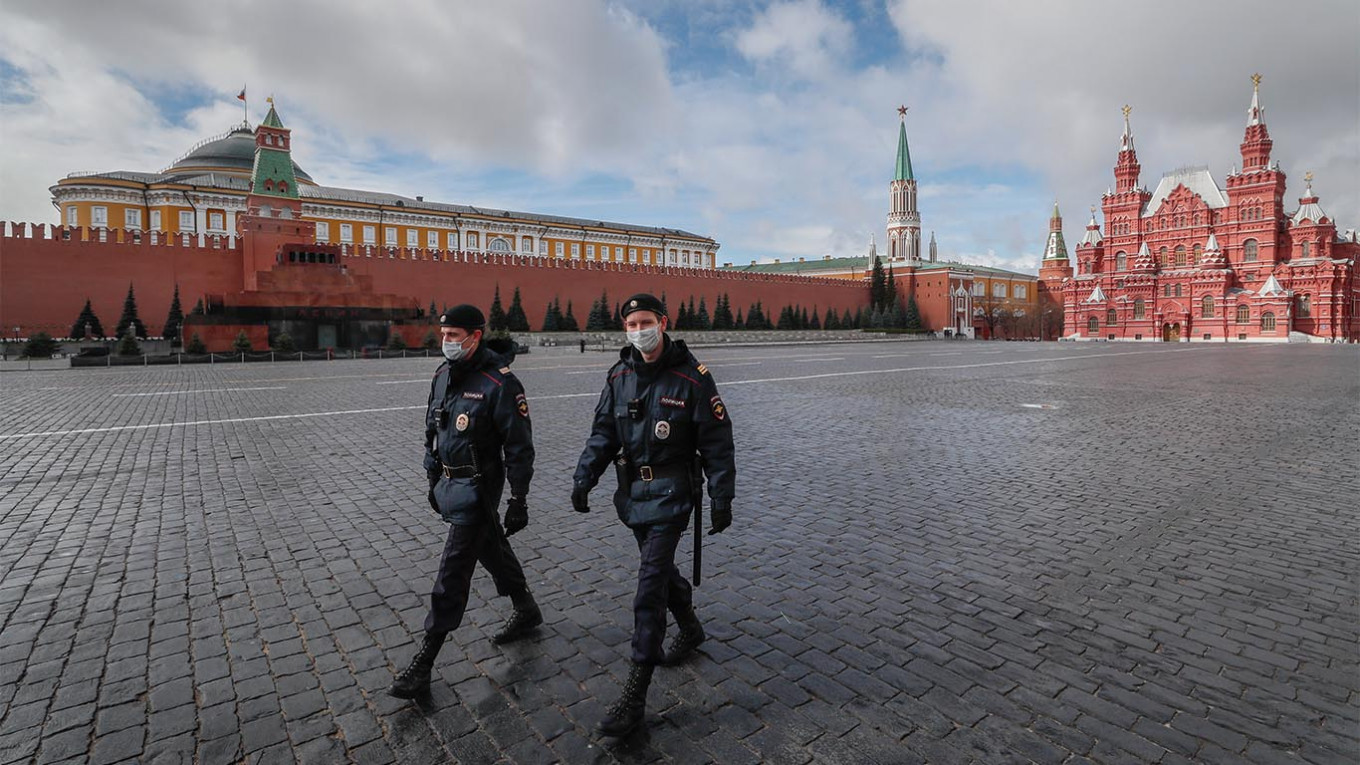Moscow mayor Sergei Sobyanin on Saturday announced a "non-working" week in the Russian capital, with non-essential workers told to stay home, as Covid-19 cases hit a six-month high.
The decision marks a change of tone for Russian authorities, with President Vladimir Putin repeatedly insisting that Russia has handled the pandemic better than most countries.
"During the past week the situation with the spread of the coronavirus infections has sharply deteriorated," Sobyanin said on his website as the city registered 6,701 daily infections, the highest number since December last year.
Sobyanin added that "thousands" of hospital beds have been repurposed for coronavirus patients.
"We cannot not react to such a situation," he said. "To stop the growth of infections and to save people's lives, today I signed a decree providing for non-working days between June 15-19."
The order affects all employees in the Russian capital, a city of 12 million, except for essential workers.
Non-essential workers are not required to work from home during the period, but will still retain their salaries.
Together with the weekends and a public holiday on June 14, it means most Moscow workers will not return to their offices until June 20.
The mayor also announced the closure of food courts and playgrounds while restaurants, bars and clubs will be baned from serving customers between 23:00 and 06:00.
Sobyanin also called on employers to transfer at least 30 percent of non-vaccinated employees to working from home after the week-long shutdown.
Slow vaccination
Cases have been on the rise across the country in recent weeks as Russia struggles to innoculate its citizens despite domestic vaccines being widely available to the public.
A spike in cases has also been reported in Russia's second city Saint Petersburg, which is co-hosting the Euro 2020 football championship.
Earlier this week, Sobyanin said Moscow would be opening several field hospitals to accomodate the influx of patients.
Russia has been among the countries hardest hit by the pandemic, with the sixth-highest number of cases in the world, according to an AFP tally.
Kremlin critics have accused authorities of downplaying the severity of the pandemic by only counting fatalities where the coronavirus was found to be the primary cause of death after autopsy.
On Saturday, Russia registered 13,510 new coronavirus cases and 399 deaths, according to a government tally.
Russia imposed a strict lockdown when the pandemic first swept across the country last spring
But within months authorities had lifted most measures, opting to protect the struggling economy and pinning their hopes on curbing the outbreak with vaccines.
Officials have registered four homegrown vaccines — Sputnik V, its single-dose version Sputnik Light, EpiVacCorona and CoviVac.
Russia's domestic vaccination campaign started in early December, ahead of most countries, but Russians have been hesitant to sign up.
Polls show that more than half of respondents do not intend to get vaccinated.
So far 18 million Russians — or 12 percent of the population — have received at least one dose of a vaccine.
Putin — who the Kremlin said was vaccinated in private with one of Russia's jabs — has repeatedly called on Russians to get immunised.
A Message from The Moscow Times:
Dear readers,
We are facing unprecedented challenges. Russia's Prosecutor General's Office has designated The Moscow Times as an "undesirable" organization, criminalizing our work and putting our staff at risk of prosecution. This follows our earlier unjust labeling as a "foreign agent."
These actions are direct attempts to silence independent journalism in Russia. The authorities claim our work "discredits the decisions of the Russian leadership." We see things differently: we strive to provide accurate, unbiased reporting on Russia.
We, the journalists of The Moscow Times, refuse to be silenced. But to continue our work, we need your help.
Your support, no matter how small, makes a world of difference. If you can, please support us monthly starting from just $2. It's quick to set up, and every contribution makes a significant impact.
By supporting The Moscow Times, you're defending open, independent journalism in the face of repression. Thank you for standing with us.
Remind me later.






